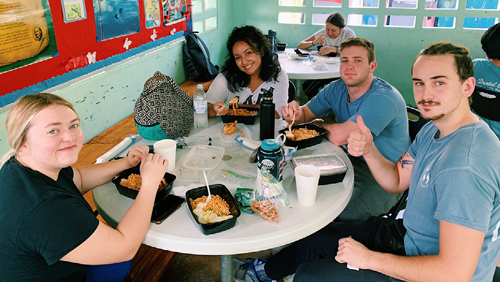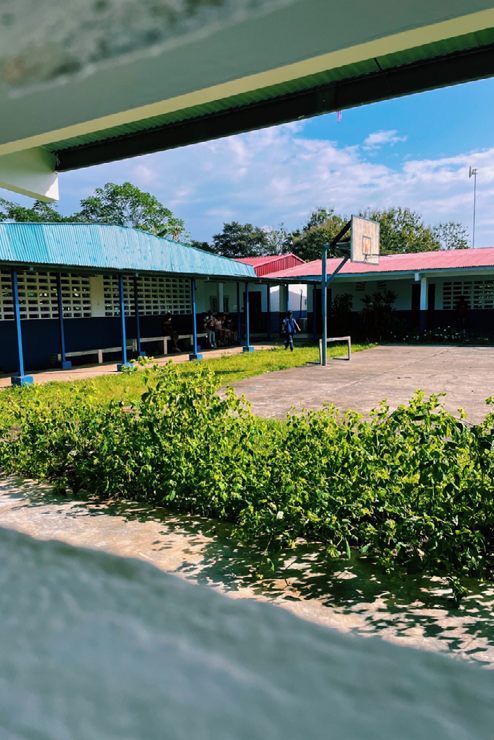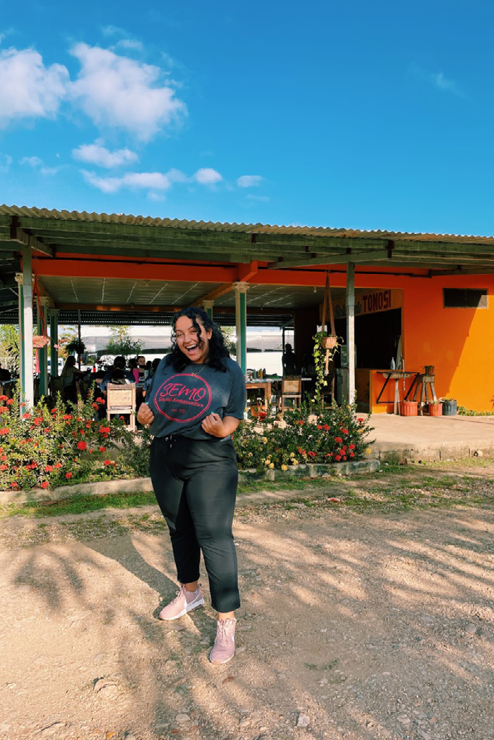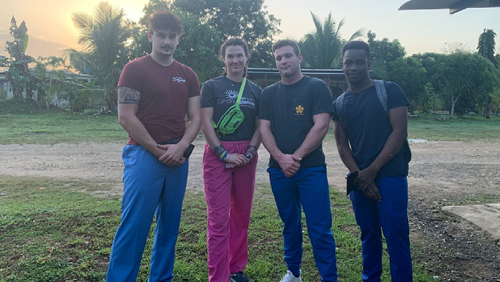Q & A With the Global Medical Brigades
Continue to main contentWinter break is a great time to soak up some R&R and catch up with family and friends. But leave it to SEMO students to find ways to enrich their winter break with experiential learning.
This January, students from Southeast’s Global Medical Brigades chapter traveled to Panama to lend a helping hand. Global Brigades is an international student-led non-profit that empowers underprivileged Central America and West Africa communities by providing global health and holistic development. Since its inception, the Global Brigades program has treated 1,499,396 patients, raised $148,797,145, given 32,052 people access to clean water, and partnered with 649 communities.
So what is it like to travel to Central America on a service trip? We reached out to SEMO students to find out.
Pre-Med Major
"It was not only a beneficial experience to learn about my particular career field, but it was also intriguing to see their culture and traditions. It is a trip any SEMO student can go on which I totally recommend."
Nolan Knupp
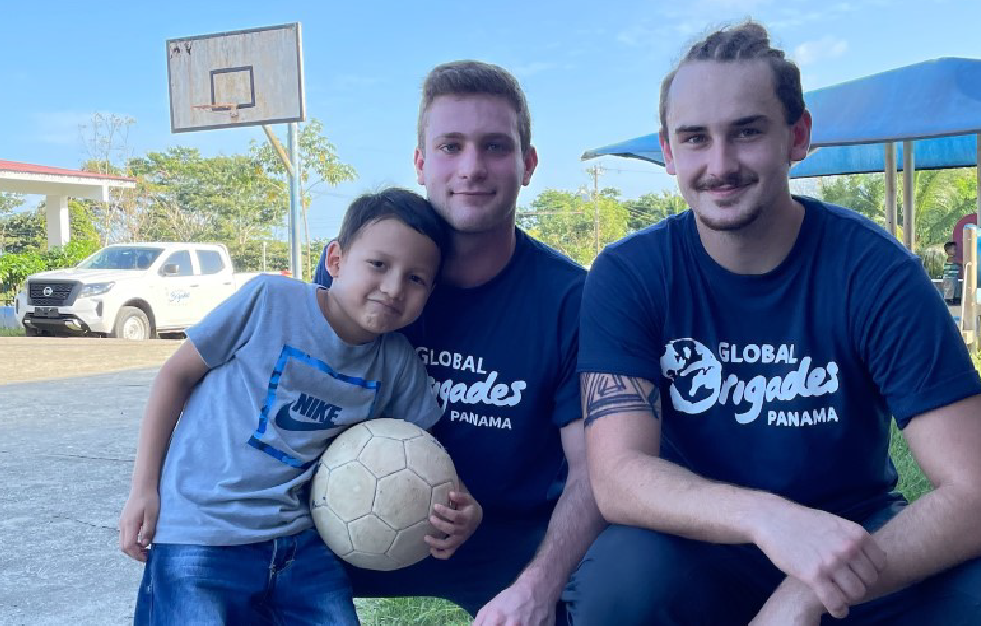
What was your motivation to go?
"My main motivation to go on a brigade in Panama was to gain knowledge and hands-on experience to help in my future career in medicine as a physician. I knew learning about the common health issues and healthcare system in the rural communities of Panama would give me a more well-rounded view. Also, the particular communities we provided medical attention to were under-resourced. I knew going into the trip we would be able to assist in improving their quality of life in a health-related aspect."What was the most memorable moment?
"My most memorable experience was our brigade in the first community we served. There were two communities in total, and we worked in each one for two days. A special connection was made between us and the first community in particular. Not only did we give them medical treatment, but we also played soccer with the kids. Being able to see them happy while we kicked the soccer ball around, reminded me to cherish the simple things in life more. Even though the kids may not have the best living conditions, they still have a positive outlook on life."What did you learn and how will it apply to your career or life?
"I became aware of the main medical concerns in underserved communities within the region such as parasitic infections from untreated water. A hands-on skill I learned was how to take blood pressure. I was able to practice on the patients who came into triage. We also were able to practice other skills such as taking temperature, height and weight, and pulse. Lastly, I had the opportunity to work in the pharmacy which is where we gathered the medication together to give the patients depending on their diagnosis. I will use all of the knowledge and hands-on skills I learned in my future career in medicine as a physician. It was a great experience to be able to work on the basics."Integrated Marketing Communications Major
"I wanted to join the Medical Brigade because I wanted to travel and experience something different. Unlike most participants, I am not seeking a career within the medical field, so my participation seemed a little weird. I knew it would be rare for me to have this opportunity again-where else would I go with a bunch of people I know to go help a village! I also was so excited to see how the people within Panama live. "
Layla Bouzihay
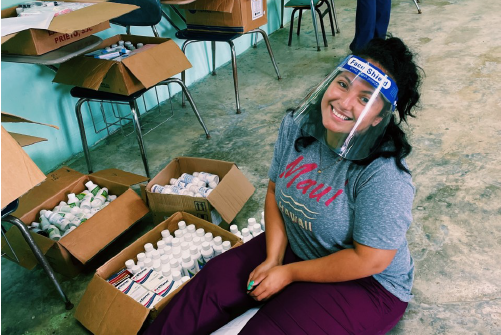
What was the most memorable moment?
"During our second day at our clinic, we had some extra time and decided to kick around a soccer ball. While we were playing, we saw some kids staring at us- mind you they have been staring at us all day, but we were too busy to interact. Now that we were playing soccer, we tried to motion them over to join in the game. They were so shy at first and just shook their heads no. After a while we started kicking the ball to them, forcing them to play with us. Eventually they felt comfortable enough to come up to us to play. I made friends with this sweet little girl. Every time she had the ball, she would kick it directly to me. Although neither of us could speak each other's languages, we were still able to communicate by hand gestures and smiles. It was such a heartfelt moment."What did you learn and how will it apply to your career or life?
"Although it was a medical brigade, I indirectly learned things to help my marketing career. Throughout conversations with the staff, I gained more understanding about the marketing within Panama and gave advice on how they can help brand their company. The trip also helped give me insight on how philanthropy works. Although this may not help me in my professional career, I learned how to take blood pressure and that was really awesome."Anything else you would like to add about the experience?
"This was an experience of a lifetime. I met people who I hope to know for the rest of my life. Experiences like this help shape students to become better professionals and better people. I became closer with new people and interacted with people from other universities. I learned new cultures and tried an array of different foods. I built connections that can only happen when you are all sleep deprived, hungry and sweaty in the middle of Panama's hot season."
Memories of Panama
-
 Layla and Nolan (center) enjoying a meal with other Brigades members.
Layla and Nolan (center) enjoying a meal with other Brigades members. -
 A school building where community members recieved medical assistance.
A school building where community members recieved medical assistance. -
 Layla showing off her SEMO Social Ambassador shirt.
Layla showing off her SEMO Social Ambassador shirt. -
 Nolan (second from the right) posing with fellow Brigades members.
Nolan (second from the right) posing with fellow Brigades members.
Help Fund the Next Trip
Donations made towards the last trip taken, Panama, will go towards next year's Global Medical Brigades trip. Community donations make it possible for students to not only make an impact in underserved communities, but gain life long skills and connections.
